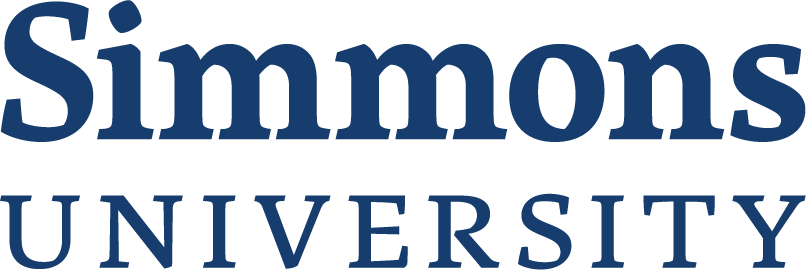Manuscripts Archivist, University of Tennessee, Chattanooga, TN
Posted January 13, 2020
The University of Tennessee at Chattanooga (UTC) Library seeks a dynamic professional for the position of Manuscripts Archivist.
Reporting to the Director of Special Collections, the Manuscripts Archivist is responsible for the overall management of Manuscripts and Chattanooga History Collections’ materials, including significant contemporary congressional collections with extensive born-digital holdings. The Manuscripts Archivist leads engagement efforts with manuscript collections to advance discovery and learning, promotes manuscript holdings through outreach, research and reference services, and cultivates partnerships that connect the Library’s expertise, resources, and services with the varying needs of a diverse constituency.
The Manuscripts Archivist also collaborates with donors, and provides and coordinates appraisal, accessioning, processing, arrangement, description, and preservation of materials in all formats. As a member of Special Collections, the Manuscripts Archivist shares responsibility for providing service in the George C. Connor Reading Room, contributing to digital projects, developing grant proposals, and assessing services and holdings, among other contributions to Special Collections, the Library, and UTC. As a tenure-track position, the Manuscripts Archivist holds responsibility in three core areas described below.
Position-specific responsibilities include the following:
-
Plans and oversees the acquisition, processing, description, storage, preservation, exhibition, digitization, and stewardship of materials that document the cultural heritage of Chattanooga, Hamilton County, and the Tennessee Valley.
-
Provides oversight for accessioning, preparation of processing plans, arrangement and description, and preservation of materials in accordance with accepted standards and practices.
-
Contributes to the creation of policies, procedures, workflows, and standards compliance in archival description and digital projects, and implements technologies and strategies to support these activities by collaborating with stakeholders.
-
Interacts with donors, appraises potential collection additions, and makes recommendations for the acquisition of new collections, paying close attention to legal and privacy issues involved in the transfer of materials.
Specific job duties within the team will vary based on position, but the following responsibilities encompass the broad functional activities of Special Collections unit members:
-
Contributes to reference services by assisting patrons in person, on the phone, and by email.
-
Proposes, designs, and installs physical and web exhibits.
-
Contributes to digitization and digital curation projects.
-
Designs and manages projects for student assistants and interns.
-
Assists with the development of grant proposals.
-
Participates in unit meetings, future visions, assessment, and policy development.
Library and University responsibilities include the following:
-
Participates in providing reference and outreach services to the university community.
-
Serves proactively on library-wide task forces, committees, and councils as appointed.
-
Participates in university governance, planning, and service.
-
Conducts scholarship consistent with a tenure-track appointment.
-
Engages in continuing professional development.
Qualifications
Required
-
A graduate degree in library science from an ALA-accredited institution.
-
Experience processing archival collections in accordance with foundational principles such as respect des fonds and original order.
-
Experience managing collections and preparing DACS-compliant finding aids in an archival content management system, such as ArchivesSpace, Archivists’ Toolkit, and Archon.
-
Experience training and directing the work of student assistants, interns, and/or volunteers working on archival processing, oral history, exhibition, and/or digitization projects.
-
Experience applying nationally-accepted standards, vocabularies, and best practices for archival processing and description, including DACS, EAD, EAC-CPF, LCSH, LCNAF, and AAT.
-
Experience curating collections with privacy concerns, including processing and providing access to sensitive, restricted, or classified information.
-
Initiative, flexibility, and creativity to manage projects independently and as part of a team in a dynamic professional environment.
-
Strong written, verbal, and interpersonal communication skills.
-
Willingness and demonstrated capacity to learn new approaches.
Desired
-
Demonstrated knowledge of the Legislative Branch and Congressional actions and processes and needs of researchers studying Congress.
-
Experience with a variety of digital capture equipment and software, including flatbed scanners, digital cameras, Adobe Photoshop, Lightroom, Premiere Pro, Media Encoder, Audacity, Handbrake, Hasselblad Phocus, and other tools.
-
Experience with digital repository platforms, such as CONTENTdm and Digital Commons.
Salary
The minimum annual salary is $48,000, commensurate with experience.
Application Process
To view the full position and apply, please visit the following link.
Interested applicants must prepare and submit the materials articulated below:
1. a letter of application,
2. a current curriculum vitae,
3. a statement of librarianship philosophy,
4. the names, addresses, telephone numbers, and e-mail addresses of three references including the professional relationship of reference and applicant.
Applicants must submit applications electronically through the UTC Faculty Career Site. The review of applications begins on February, 10, 2020 and continues until the position is filled.
Additional Information
For information about UTC and the Library please visit www.utc.edu and www.utc.edu/library.
For information about Chattanooga, please visit www.chattanoogafun.org or www.chattanooga.gov.
The University of Tennessee, Chattanooga is an EEO/AA/Title VI/Title IX/Section 504/ADA/ADEA. All qualified applicants will receive equal consideration for employment and will not be discriminated against on the basis of race, color, national origin, religion, sex, pregnancy, marital status, sexual orientation, gender identity, age, physical or mental disability, or protected veteran status.
